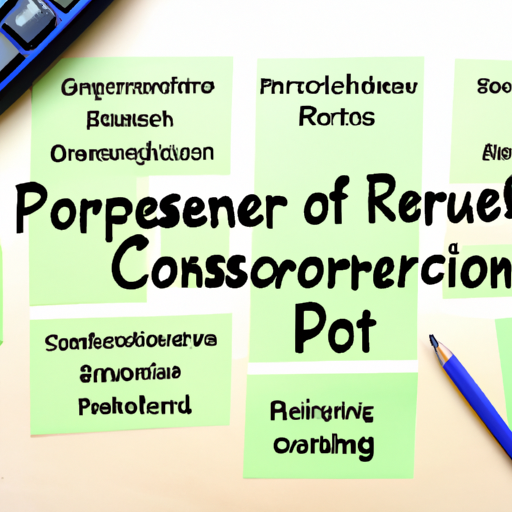Unleashing the untamed potential of creativity and organization, the role of a Project Coordinator breathes life into the realm of project management. With a dash of innovation and a pinch of meticulousness, these professionals orchestrate the harmonious symphony of tasks, deadlines, and diverse team dynamics. They are the navigators deftly charting the course for successful project completion. In this article, we shall embark on an illuminating journey to explore the intriguing world of Project Coordination, unravelling its multifaceted responsibilities, and unearthing the indispensable skills required to thrive in this captivating role. So, fasten your seatbelts, fellow adventurers, as we unravel the enigmatic beauty of the Project Coordinator job description.
Table of Contents
- Setting the Stage: The Evolving Role of a Project Coordinator
- Uncovering the Core Responsibilities of a Project Coordinator
- Essential Skills and Competencies for Successful Project Coordinators
- Navigating the Collaborative Landscape: Effective Communication and Stakeholder Management
- Mastering Time and Resource Management: Key Strategies for Project Coordinators
- Harnessing the Power of Technology: Tools and Platforms for Enhanced Project Coordination
- The Art of Adaptability: Problem-solving and Decision-making as a Project Coordinator
- In Conclusion

Setting the Stage: The Evolving Role of a Project Coordinator
Overview:
The role of a project coordinator has evolved significantly in recent years, adapting to the changing landscape of project management. Gone are the days when project coordinators were solely responsible for administrative tasks and documentation. Today, project coordinators are indispensable members of project teams, helping to streamline processes, facilitate communication, and ensure the successful execution of projects.
Main Responsibilities:
- Collaboration: Project coordinators are key players in project teams, working closely with project managers, stakeholders, and team members to ensure alignment and efficient collaboration.
- Planning and Organization: From developing project plans to coordinating schedules and resources, project coordinators play a critical role in ensuring projects stay on track and meet deadlines.
- Communication: Effective communication is at the core of a project coordinator’s responsibilities. They facilitate information flow, ensuring that team members are up-to-date and well-informed about project progress and changes.
- Risk Management: Project coordinators are tasked with identifying potential risks, assessing their impact, and developing mitigation strategies to minimize disruptions and setbacks.
Skills and Qualifications:
- Excellent organizational and time management skills
- Strong communication and interpersonal skills
- Attention to detail and ability to work under pressure
- Proficient in project management tools and software
- Adaptability and agility in a fast-paced environment
- Strong problem-solving and decision-making abilities
If you have a passion for project management, love working in a collaborative environment, and thrive in a dynamic role that requires constant adaptation, then a career as a project coordinator might be the perfect fit for you.
Note: The responsibilities and qualifications may vary depending on the industry and organization.

Uncovering the Core Responsibilities of a Project Coordinator
Planning and Organization: As a project coordinator, one of the core responsibilities is to meticulously plan and organize all aspects of a project. This involves creating detailed project timelines, setting clear goals and objectives, and allocating resources effectively. A project coordinator must have exceptional time management skills to ensure that all tasks and deadlines are met efficiently. By implementing robust project management methodologies, such as Agile or Waterfall, they can streamline processes and ensure smooth project execution.
Communication and Collaboration: Effective communication is crucial for a project coordinator to succeed. They need to maintain open lines of communication with all stakeholders, including clients, team members, and executives. Clear and concise communication helps to ensure everyone is on the same page regarding project progress, objectives, and any potential roadblocks. Additionally, a project coordinator must foster a collaborative work environment and encourage teamwork. By promoting effective collaboration, they can enhance productivity and maximize the potential of the team, ultimately leading to the successful completion of the project.

Essential Skills and Competencies for Successful Project Coordinators
Successful project coordinators possess a diverse set of essential skills and competencies that enable them to effectively execute their job responsibilities and contribute to the overall success of a project. These skills and competencies are crucial for ensuring optimal project coordination and smooth project delivery.
First and foremost, project coordinators must possess excellent organizational and time management skills. They should be adept at creating and maintaining project schedules, managing deadlines, and prioritizing tasks. Additionally, strong communication skills are essential for project coordinators to effectively collaborate with team members, stakeholders, and clients. This includes the ability to clearly articulate project plans, objectives, and expectations, as well as actively listen and provide feedback. Moreover, problem-solving and decision-making skills are vital for project coordinators to address challenges and make prompt decisions that align with project goals. Lastly, project coordinators should be detail-oriented and have strong attention to detail in order to ensure accuracy and quality in project documentation and deliverables.
Navigating the Collaborative Landscape: Effective Communication and Stakeholder Management
In the role of a project coordinator, effective communication and stakeholder management are crucial skills to navigate the collaborative landscape successfully. As a project coordinator, you will be responsible for facilitating clear and efficient communication among team members, stakeholders, and clients. By utilizing various communication channels such as email, messaging platforms, and in-person meetings, you will ensure that information flows seamlessly and everyone involved in the project is kept informed.
Managing stakeholders is another key aspect of the role. You will be the main point of contact for stakeholders, managing their expectations, concerns, and feedback. This will involve actively engaging with stakeholders, building strong relationships, and addressing any issues or conflicts that may arise. By maintaining open lines of communication and understanding the needs of each stakeholder, you will promote effective collaboration and ensure that the project stays on track.
Mastering Time and Resource Management: Key Strategies for Project Coordinators
As a project coordinator, effectively managing time and resources is crucial to ensuring the successful completion of projects. To master this skill, project coordinators can employ a variety of key strategies that will enhance their efficiency and productivity. These strategies not only enable them to stay organized and focused, but also help them streamline workflows and meet deadlines.
- Prioritize tasks: One of the first steps in effective time and resource management is to prioritize tasks. By evaluating the urgency and importance of each task, project coordinators can determine which ones need immediate attention and which ones can be delegated or postponed.
- Create a schedule: Developing a clear and detailed schedule is essential for project coordinators to keep track of all the tasks within a project. This schedule should include specific deadlines, milestones, and allocated resources, allowing for better planning and monitoring of progress.
- Break down projects: Breaking down large projects into smaller, manageable tasks is a valuable strategy for project coordinators. By dividing the overall project into smaller components, they can focus on individual tasks, monitor their progress, and identify potential bottlenecks or challenges more effectively.
Implementing these key strategies will undoubtedly strengthen a project coordinator’s ability to manage time and resources effectively. By prioritizing tasks, creating a schedule, and breaking down projects, coordinators can ensure smoother project execution, improved productivity, and higher chances of meeting project objectives.
Harnessing the Power of Technology: Tools and Platforms for Enhanced Project Coordination
In order to excel in the role of a project coordinator, it is crucial to harness the power of technology and utilize various tools and platforms for efficient project coordination. By leveraging these resources, project coordinators can streamline processes, enhance collaboration, and ensure successful project delivery. Here are some key tools and platforms that can significantly elevate the effectiveness of a project coordinator:
- Project Management Software: Implementing a reliable project management software allows project coordinators to effectively plan, organize, and manage tasks. It facilitates seamless communication among team members, tracks progress, and ensures timely completion of deliverables.
- Collaboration and Communication Platforms: Utilizing platforms such as Slack, Microsoft Teams, or Asana provides project coordinators with channels for real-time discussions, document sharing, and task assignments. These platforms foster a collaborative environment and encourage open communication among team members.
- Data Visualization Tools: Visualizing project data through tools like Tableau or PowerBI allows project coordinators to gain valuable insights, identify trends, and make data-driven decisions. This aids in effectively monitoring project progress, identifying potential risks, and adapting strategies accordingly.
By embracing these technology-driven tools and platforms, project coordinators can maximize their efficiencies and elevate their impact. The ability to seamlessly manage tasks, collaborate effectively, and utilize data insights enables project coordinators to successfully navigate the complexities of project coordination and deliver exceptional results.
The Art of Adaptability: Problem-solving and Decision-making as a Project Coordinator
In the dynamic world of project coordination, the ability to adapt and navigate through challenges is a prized skill. As a project coordinator, you are the driving force behind successful project implementation. One of the core aspects of your role is problem-solving. This involves identifying potential hurdles or roadblocks that may arise during the project lifecycle and finding effective solutions to overcome them. Whether it’s analyzing unexpected delays, resource constraints, or budget limitations, your knack for problem-solving will keep the project on track.
Furthermore, decision-making plays a crucial role in your daily responsibilities as a project coordinator. You will encounter a myriad of decisions to make, ranging from minor adjustments to major strategic choices. The art lies in evaluating options, weighing risks and benefits, and making informed decisions that align with project objectives. Your ability to prioritize tasks, manage timelines, and allocate resources effectively will ensure efficient project execution, even in the face of ambiguity. Adaptability, problem-solving, and decision-making are the cornerstones of your success as a project coordinator, and mastering these skills will make you an invaluable asset to any team.
In Conclusion
As we conclude this exploration into the world of project coordination, we hope that you have gained a deeper understanding of the multifaceted role of a project coordinator. From orchestrating the harmonious collaboration of team members to meticulously managing timelines and budgets, this position demands a unique combination of organization, leadership, and adaptability.
Whether you find yourself inspired to pursue a career in project coordination or you are already a seasoned professional seeking to enhance your skills, one thing is certain: the role of a project coordinator is ever-evolving. With each new project comes a fresh canvas upon which you can paint your vision, mold your team, and achieve success.
While we have shed light on the responsibilities, skills, and qualifications that comprise this dynamic job description, it is ultimately up to you to shape your own path. As a project coordinator, you have the power to transform chaos into cohesion, challenges into opportunities, and dreams into realities.
So go forth, armed with this newfound knowledge and a passion for bringing ideas to life. Embrace the ever-changing landscape, the exhilarating rollercoaster of projects, and the satisfaction of seeing your efforts come to fruition. As a project coordinator, you have the potential to become the conductor of symphonies, the architect of order, and the driving force behind remarkable achievements.
May success accompany you on your journey, and may your every project be a testament to your unwavering dedication and exceptional coordination skills. Keep the wheels of progress turning, the gears of innovation spinning, and let your impact resonate far and wide. The world awaits your extraordinary talents as you embark on this thrilling adventure as a project coordinator.
